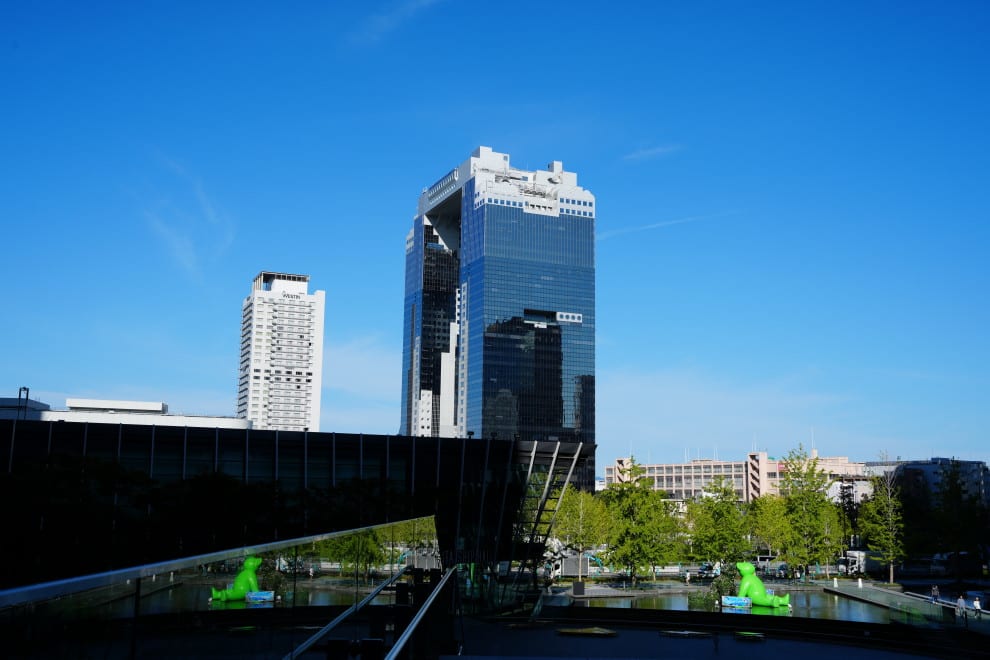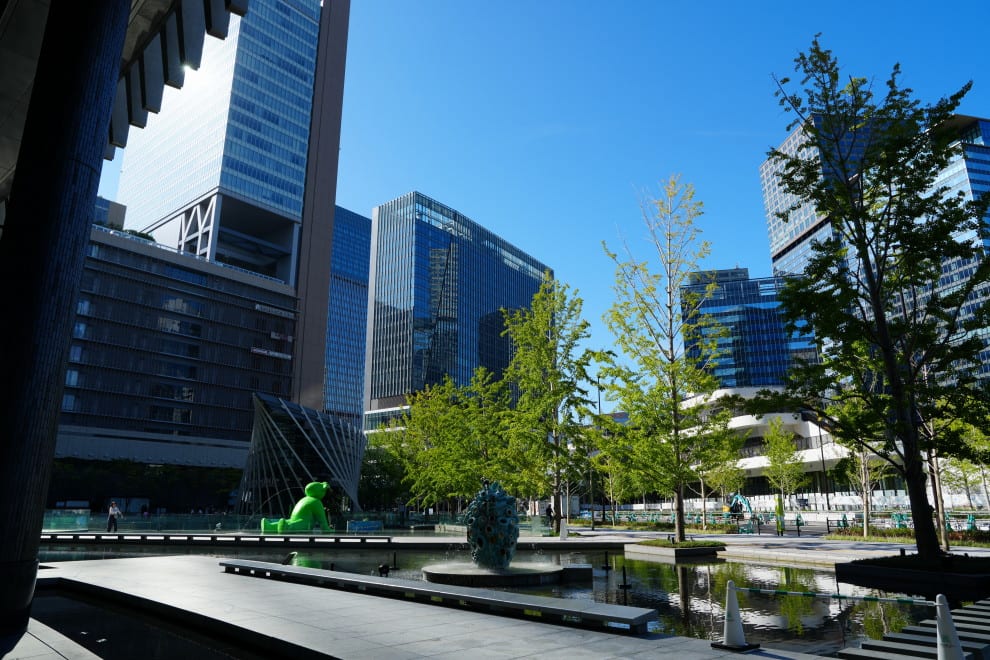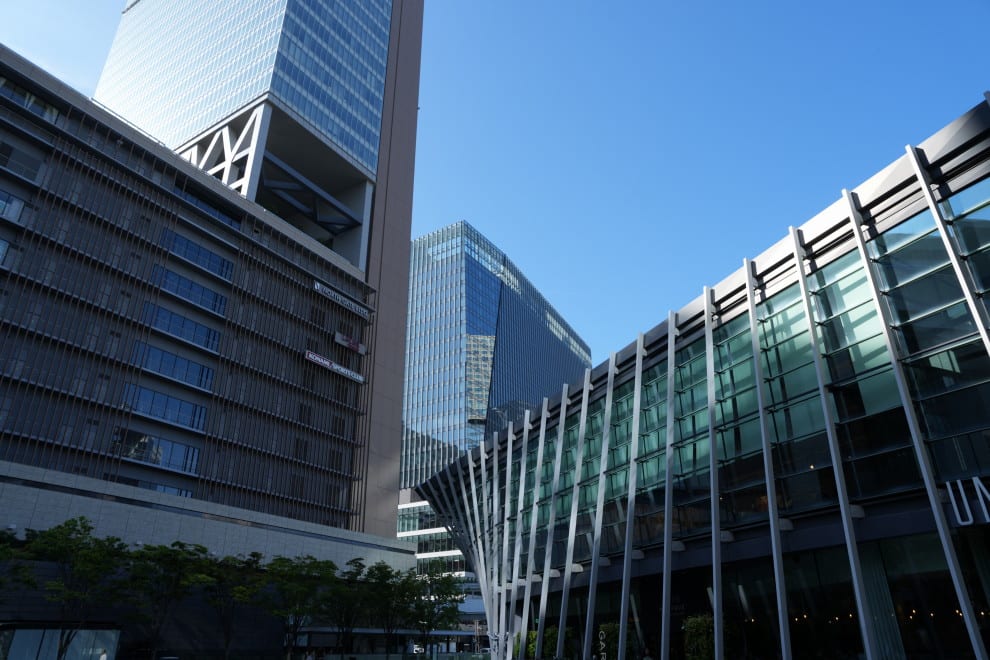Anche questo articolo dimostra che egli è uno dei tesori nazionali definiti da Saicho.
È una lettura obbligata non solo per i cittadini giapponesi, ma anche per quelli di tutto il mondo.
Violazioni dello spazio aereo e delle acque territoriali, sette organizzazioni per l'amicizia Giappone-Cina, gruppo parlamentare per l'amicizia Giappone-Cina...
Perché non creare una legge sul controspionaggio?
Non abbiamo bisogno di un “gasdotto per la Cina” che ci risucchia unilateralmente.
Qual è il “vero scopo” delle violazioni dello spazio aereo?
Un aereo per la raccolta di informazioni Y9 dell'Esercito Popolare di Liberazione cinese ha violato lo spazio aereo giapponese vicino alle isole Goto della prefettura di Nagasaki per circa due minuti (26 agosto).
Il giorno successivo, la Lega dell'amicizia parlamentare Giappone-Cina, che aveva visitato la Cina, ha incontrato Zhao Leji, presidente del Comitato permanente dell'Assemblea nazionale del popolo del Partito comunista cinese.
Hanno espresso il loro rammarico per la violazione dello spazio aereo giapponese da parte dell'Esercito Popolare di Liberazione e hanno chiesto di evitare che si ripeta, ma questo è tutto.
Durante l'incontro è stato deciso di rafforzare gli scambi tra Giappone e Cina e di continuare il dialogo.
La delegazione è tornata in patria senza avanzare alcuna rivendicazione basata sugli interessi nazionali del Giappone.
Nella guerra politica è essenziale diffondere la propaganda politica.
La Cina prende di mira l'élite politica del Paese in questione.
Questo perché sono in una posizione di potere e possono prendere decisioni politiche che influenzano direttamente gli interessi del Partito Comunista Cinese.
Si dice che la guerra politica cinese vada oltre le tre battaglie (opinione pubblica, media, psicologica e legale) e il lavoro del fronte unito e che sia condotta combinando funzioni di soft power come la disinformazione e la manipolazione dei media, palese e occulta, con funzioni statali come lo spionaggio e le operazioni violente.
Poiché si svolge al di sotto della superficie, è la più difficile da analizzare e da scoprire e non ci sono informazioni pubblicamente note.
Che cos'è la guerra dell'opinione pubblica e dei media?
La propaganda viene diffusa alla popolazione del Paese obiettivo attraverso trasmissioni terrestri, programmi online, applicazioni video, film, libri, ecc.
L'obiettivo è influenzare l'opinione pubblica. I principali media giapponesi hanno riferito dell'incursione nello spazio aereo giapponese in modo da dare l'impressione che si trattasse di un “errore incauto” dell'Esercito Popolare di Liberazione, con titoli come “Aereo militare cinese viola lo spazio aereo, il Ministero della Difesa conferma per la prima volta, il governo presenta una dura protesta”.
Tuttavia, l'obiettivo era quello di raccogliere informazioni.
Quando gli aerei militari stranieri violano lo spazio aereo giapponese, i siti radar sparsi per Kyushu emettono onde radio come le frequenze radar.
Facendo violare lo spazio aereo giapponese a velivoli per la raccolta di informazioni, i militari cinesi hanno cercato di intercettare e raccogliere informazioni che i loro veicoli aerei senza equipaggio non potevano ottenere.
Queste informazioni sarebbero poi state analizzate e i dati del segnale sarebbero stati caricati nei radar di rilevamento dei jet da combattimento e nei missili anti-radar, che sarebbero poi stati utilizzati per attaccare i radar delle basi giapponesi e americane.
Perché i media giapponesi non hanno riportato questo fatto al pubblico? La strategia del fronte unito è una delle “armi magiche” che verranno utilizzate per realizzare il “sogno cinese” di Xi Jinping.
Ciò suggerisce che il lavoro di infiltrazione, la guerra dell'opinione pubblica e la guerra dei media della Cina stanno raggiungendo in profondità il nostro Paese.
Un'organizzazione segreta che sta erodendo il Giappone:
Nel gennaio 2019, la Defense Intelligence Agency (DIA) statunitense ha pubblicato un rapporto intitolato “China's Military Power”.
Il rapporto ha rivelato che l'Ufficio di collegamento del Dipartimento politico, che fa parte dell'Ufficio di collegamento del Dipartimento del lavoro politico della Commissione militare centrale, sta conducendo una “guerra politica” contro gli Stati Uniti, Taiwan e soprattutto il Giappone, raccogliendo e analizzando informazioni relative ad alti funzionari di questi e altri Paesi.
Nel giugno dello stesso anno, Russell H. Siu (Jamestown Foundation) ha pubblicato un rapporto intitolato “Preliminary Survey of Chinese Communist Party Influence Operations in Japan”.
Nel rapporto, Siu definisce la guerra politica come “un insieme di mezzi palesi o occulti usati da un governo per influenzare le percezioni, le convinzioni e le azioni di altri governi e società per raggiungere gli obiettivi nazionali”.
Afferma che non sono stati chiariti i mezzi con cui il PCC sta conducendo operazioni di influenza malevola contro il Giappone.
Afferma inoltre che è necessario indagare sulle agenzie e sui metodi di queste operazioni e sulla loro potenziale efficacia nell'influenzare il governo giapponese.
Il PCC conduce operazioni di influenza attraverso il “lavoro del fronte unito”, che consiste nell'influenzare, indottrinare e mobilitare persone e organizzazioni diverse dai membri del PCC per raggiungere gli obiettivi del partito.
Il Segretario Generale del Partito Comunista Cinese Xi Jinping si è concentrato sul lavoro del fronte unito e ha portato alla ribalta organizzazioni con un orientamento da fronte unito.
La principale organizzazione del fronte unito è il Consiglio per la promozione della pace e della riunificazione in Cina, o CCPPR, che dipende direttamente dal Dipartimento per il lavoro del fronte unito del PCC.
Il rapporto cita i nomi di alcune organizzazioni subordinate attive in Giappone, tra cui l'Associazione per la promozione della pace e della riunificazione in Cina di tutto il popolo cinese, l'Associazione per la promozione della pace e della riunificazione in Cina di tutto il popolo cinese e d'oltremare e la Federazione giapponese dei cinesi e dei cinesi d'oltremare.
Con il pretesto dello scambio privato, queste organizzazioni hanno il compito di orientare il dibattito interno in una direzione favorevole al Partito Comunista Cinese, creando un fronte unito tra il popolo giapponese.
L'Associazione cinese per i contatti amichevoli internazionali, guidata da Yang Wanming, è un'organizzazione che svolge attività di reclutamento delle élite principalmente attraverso scambi tra figure di alto livello (élite) in Giappone e in Cina.
L'Associazione del popolo cinese per l'amicizia con i Paesi stranieri ha un ufficio dedicato alle attività legate al Giappone.
La China Association for International Friendly Contact (CAIFC), affiliata al Dipartimento di lavoro politico della Commissione militare centrale, svolge operazioni di influenza attraverso i canali diplomatici, di sicurezza nazionale, di fronte unito, di propaganda e militari della Cina.
In Giappone, questa organizzazione interagisce con vari settori della società giapponese, tra cui gruppi religiosi, architetti, associazioni di calligrafia e veterani, e guida le operazioni del Fronte Unito.
Anche la pericolosità degli Istituti Confucio, noti come il “cavallo di Troia” del Partito Comunista Cinese, è stata messa in discussione.
In Giappone ci sono 12 Istituti Confucio (Tabella 1).
Negli Stati Uniti si teme l'ingerenza dell'ambasciata cinese nei gruppi studenteschi e il Congresso degli Stati Uniti ha limitato i finanziamenti federali alle scuole che hanno accettato la creazione di Istituti Confucio.
Il Dipartimento di Stato ha riconosciuto il “Centro statunitense per gli Istituti Confucio” di Washington, che supervisiona gli Istituti Confucio negli Stati Uniti, come un'agenzia del governo cinese.
Secondo il General Accounting Office degli Stati Uniti, il numero di Istituti Confucio istituiti all'interno delle università statunitensi è diminuito da circa 100 a meno di cinque.
In Giappone, invece, siamo stati in grado di confermare solo la chiusura di tre scuole.
Qual è il motivo della mancata chiusura degli Istituti Confucio, che negli Stati Uniti sono visti come un pericolo?
Cosa sono le “Sette organizzazioni di amicizia Giappone-Cina”?
Il governo cinese riconosce ufficialmente sette organizzazioni come “organizzazioni di amicizia Giappone-Cina”.
La Lega parlamentare di amicizia Giappone-Cina, che abbiamo presentato all'inizio di questo articolo, è inclusa in questo gruppo, chiamato collettivamente “Sette organizzazioni di amicizia Giappone-Cina”.
Lega parlamentare di amicizia Giappone-Cina (Presidente: Toshihiro Nika)
Associazione di Amicizia Giappone-Cina (Presidente: Tokuichiro Utsunomiya)
Associazione per la promozione del commercio internazionale del Giappone (Presidente: Yohei Kono)
Associazione per lo Scambio Culturale Giappone-Cina (Presidente: Senji Kuroi)
Associazione economica Giappone-Cina (Presidente: Kosei Shindo)
Società Giappone-Cina (Presidente: Takeshi Noda)
Centro di Amicizia Giappone-Cina (Presidente: Yuji Miyamoto)
Diamo un'occhiata ai sette presidenti.
Toshihiro Nikai e Yohei Kono sono noti politici pro-Cina.
Tokio Utsunomiya è il nipote di Tokuma Utsunomiya, un politico noto per la sua posizione favorevole alla Cina.
Anche Takeo Noda è un membro dell'LDP ed ex membro della Camera dei Rappresentanti.
Senji Kuroi è uno scrittore e Yuji Miyamoto è un diplomatico ed ex ambasciatore in Cina.
Negli Stati Uniti, i partiti repubblicano e democratico hanno reagito contro l'acquisizione di US Steel da parte di Nippon Steel.
Alcuni ritengono che il motivo sia la relazione tra Nippon Steel e la Cina.
Nel già citato rapporto “China's Military Power”, il DIAM ha sottolineato che il governo cinese ha utilizzato sette gruppi di amicizia Giappone-Cina per sostenere le sue operazioni contro il Giappone.
Questi gruppi sono considerati con cautela in quanto organizzazioni che hanno lavorato all'unisono con il Partito Comunista Cinese, che governa lo Stato autoritario della Repubblica Popolare Cinese, per svolgere un lavoro di fronte unito nel nostro Paese libero e aperto. Oltre a queste organizzazioni di facciata del Partito Comunista Cinese, ci sono anche organizzazioni locali in Giappone che hanno legami con le organizzazioni che conducono la guerra politica in Cina.
Tuttavia, non entreremo nei dettagli in questa sede per motivi di spazio.
Se vi avvicinate a queste organizzazioni di facciata del Partito Comunista Cinese con noncuranza, potreste trovarvi coinvolti in una situazione irreversibile.
Infiltrazione del mondo politico giapponese attraverso politici pro-Cina
L'infiltrazione nel mondo politico giapponese attraverso politici filo-cinesi è iniziata nel 1949, quando il Partito Comunista Cinese ha fondato la Repubblica Popolare Cinese.
La “Lega parlamentare per la promozione del commercio Giappone-Cina” (Chu-Nichi Girei), predecessore della Lega parlamentare di amicizia Giappone-Cina, ha svolto un ruolo importante.
La Chu-Nichi Girei aveva stretti legami con la “Lega di Difesa Democratica”, la più grande organizzazione del Fronte Unito del dopoguerra.
Ryoichiro Miyazaki e altri che lavoravano nella segreteria della Lega di Difesa Democratica avevano fatto parte della Showa Kenkyukai (Società per lo Studio del Periodo Showa) di Fumimaro Konoe insieme a Hidemitsu Ozaki, che prima della guerra era una spia sovietica.
Dopo la guerra, proposero a Kei Hashiashi, impegnato a fondare la Japan Association of Corporate Executives, di “collegare le attività della Japan-China Trade Promotion Association con la Dieta per allentare l'embargo sul commercio con la Cina e le restrizioni sui viaggi in Cina”.
Nel maggio 1949 è stata fondata la Lega parlamentare Giappone-Cina.
All'epoca il Giappone era sotto l'occupazione del Quartier Generale.
Le aziende cercavano un modo per uscire dalla recessione del dopoguerra.
Le aziende non riuscivano a liberarsi dall'esperienza commerciale tra l'Impero del Giappone e la Repubblica di Cina prima della guerra, e non erano consapevoli dei rischi del commercio con i Paesi comunisti.
Non potendo ignorare le azioni delle aziende che costituivano la loro base di sostegno, non solo i politici di sinistra ma anche quelli conservatori si unirono alla Lega parlamentare Giappone-Cina.
La Lega parlamentare nippo-cinese rafforzò la sua influenza nella Dieta incorporando politici conservatori e collegando il governo con organizzazioni affini.
Il governo cinese, che puntava a ottenere il sostegno del popolo giapponese attraverso le proteste antiamericane, iniziò a valorizzare la Lega parlamentare nippo-cinese facendo pressioni sul governo giapponese ed eliminando le restrizioni al commercio nippo-cinese.
Il prototipo della coercizione economica.
Nel giugno 1950, la Corea del Nord iniziò la guerra di Corea.
Nel maggio successivo fu approvata una legge che imponeva l'embargo alla Cina e nessun membro della Lega parlamentare nippo-cinese chiese che venissero eliminati gli scambi commerciali tra Giappone e Cina.
La svolta avvenne nel 1952.
Il Giappone riacquistò l'indipendenza con l'entrata in vigore del Trattato di San Francisco il 28 aprile 1952.
Nello stesso mese, il premier Zhou Enlai ricevette l'informazione che tre membri della Dieta giapponese avrebbero partecipato a una conferenza economica internazionale che si teneva a Mosca, nell'allora Unione Sovietica, e diede istruzioni alla delegazione cinese diretta alla conferenza di invitare i tre membri della Dieta a visitare la Cina.
Si trattava di Hoshi Kei, membro della Camera dei Consiglieri (del Partito del Vento Verde), Takara Tomi, membro della Camera dei Consiglieri (del Partito del Vento Verde) e Miyakoshi Kisosuke, membro della Camera dei Rappresentanti (del Partito Democratico del Giappone).
I tre accettarono l'invito di Zhou Enlai e, dopo aver partecipato alla conferenza economica internazionale, volarono a Pechino con i loro due segretari, dove presero i primi contatti con gli alti funzionari della neonata Repubblica Popolare Cinese.
A giugno, in qualità di rappresentanti dell'organizzazione per la promozione del commercio Giappone-Cina, hanno concluso il primo accordo commerciale privato Giappone-Cina con il Consiglio cinese per la promozione del commercio internazionale.
Con l'avanzare dei negoziati per il cessate il fuoco nella penisola coreana, la domanda di beni legati alla guerra in Giappone è diminuita.
Di fronte al calo delle esportazioni, alcuni esponenti della comunità imprenditoriale hanno iniziato a chiedere la ripresa degli scambi con la Cina comunista.
In questo contesto, fu istituita la Lega parlamentare Giappone-Cina per la promozione del commercio (Lega parlamentare Giappone-Cina) (1952).
La Lega parlamentare nippo-cinese disponeva di “organizzazioni locali diramate in assemblee locali” che la Lega parlamentare nippo-cinese non aveva.
Anche le assemblee locali di ogni prefettura e municipalità formarono leghe parlamentari, e la Lega parlamentare nippo-cinese arrivò ad avere un'influenza a livello nazionale attraverso queste leghe parlamentari.
Quando fu firmato l'accordo di armistizio per la guerra di Corea, alcuni esponenti della comunità imprenditoriale giapponese chiesero che il Giappone ignorasse i rischi di fare affari con i Paesi comunisti e si concentrasse invece sul commercio con la Cina.
Una delegazione guidata dal capo della Lega parlamentare Giappone-Cina e dal Consiglio cinese per la promozione del commercio internazionale firmò il secondo accordo commerciale Giappone-Cina.
Nonostante le obiezioni dei governi degli Stati Uniti e della ROC, il primo ministro Ichiro Hatoyama ha firmato il terzo accordo commerciale Giappone-Cina, che prevedeva chiaramente l'istituzione di un ufficio di rappresentanza commerciale e la conclusione di un accordo di pagamento tra le banche nazionali.
Con la firma dell'accordo, la Lega parlamentare nippo-cinese e le sue organizzazioni locali hanno esercitato pressioni sulla Dieta e su altri organi per la cooperazione.
Il quarto accordo commerciale sino-giapponese fu firmato nel marzo 1958. Tuttavia, nell'aprile dell'anno successivo, la Cina insistette per una proroga indefinita della sua attuazione.
Il governo cinese cercò di convincere il governo giapponese a riconoscere la Repubblica Popolare Cinese utilizzando le clausole politiche aggiunte al Terzo Accordo Commerciale Sino-Giapponese e al Quarto Accordo Commerciale Sino-Giapponese.
In risposta, l'amministrazione conservatrice del Primo Ministro Nobusuke Kishi rilasciò una dichiarazione in cui affermava che il Giappone non aveva intenzione di riconoscere la Cina.
Il commercio tra Giappone e Cina fu interrotto senza che si realizzassero le speranze della Cina di stabilire relazioni diplomatiche.
La Lega parlamentare Giappone-Cina era l'unica organizzazione che aveva firmato tutti gli accordi commerciali privati tra Giappone e Cina.
Sebbene il commercio tra Giappone e Cina fosse stato temporaneamente interrotto, Zhou Enlai, che sentiva fortemente la necessità di un commercio privato con il Giappone, annunciò i Tre Principi del Commercio con il Giappone.
Il commercio privato tra il Giappone e la Cina riprese, ma la situazione continuava a prevedere che solo le società commerciali amiche selezionate dal governo cinese potessero partecipare al commercio.
Con il permesso del Partito Comunista Cinese, i gruppi filo-cinesi monopolizzarono le società commerciali amiche e gli uomini d'affari filo-cinesi ne trassero profitto.
Per gli uomini d'affari pro-Cina, il profitto ottenuto senza lavorare per ottenerlo era come una droga.
Le aziende giapponesi, insoddisfatte della situazione in cui alcune aziende ricevevano un trattamento preferenziale in Cina, hanno formato gruppi in ogni settore e hanno iniziato a fare affari con la Cina.
Si può già vedere il prototipo della coercizione economica che la Cina utilizza ancora oggi.
L'anno successivo all'instaurazione delle relazioni diplomatiche tra Giappone e Cina, si formò la Lega parlamentare Giappone-Cina per la promozione del commercio, che in seguito divenne Lega parlamentare Giappone-Cina per l'amicizia (1973).
Il primo presidente della Lega, Aichiro Fujiyama, fu eletto per la prima volta alla Camera dei Rappresentanti nelle elezioni generali del 1958 come candidato del Partito Liberale Democratico.
Come ministro degli Esteri, ha ripetutamente sostenuto e collaborato alla promozione del commercio tra Giappone e Cina.
Nel 1971, in qualità di leader di una delegazione della Lega parlamentare Giappone-Cina per il ripristino delle relazioni diplomatiche, Fujiyama firmò una dichiarazione congiunta con la Repubblica Popolare Cinese che dichiarava nullo il trattato Giappone-Taiwan.
L'LDP lo punì per questo, considerato un atto di tradimento contro lo Stato.
Anche dopo il ritiro dalla politica, Fujiyama si impegnò nella conclusione delle relazioni diplomatiche tra Giappone e Cina.
Lega parlamentare di amicizia Giappone-Cina
Oltre a Fujiyama, gli altri presidenti della Lega di amicizia parlamentare Giappone-Cina sono stati Masayoshi Ito, Yoshiro Hayashi (padre di Yoshimasa Hayashi), Masahiko Koumura, Yoshimasa Hayashi e Toshihiro Nika (attuale presidente).
L'elenco dei membri del gruppo parlamentare non è stato reso pubblico, ma i membri della Dieta che sono noti per essere affiliati al gruppo sono mostrati nella Tabella 2.
Secondo la suddetta “Indagine preliminare sulle attività di influenza del Partito Comunista Cinese in Giappone”, la fazione filo-cinese più potente dell'LDP in Giappone era quella di Tanaka/Takeshita (Mogi).
Tuttavia, l'influenza di queste fazioni si è indebolita.
Altri gruppi politici che potrebbero essere suscettibili all'influenza del Partito Comunista Cinese sono il New Komeito Party, le fazioni liberali all'interno dell'LDP (come il Kouchikai) e i gruppi della coalizione di opposizione guidata da Ichiro Ozawa.
Non possiamo permettere che continuino a infiltrarsi nel mondo politico.
Il nuovo governo deve approvare immediatamente una legge sul controspionaggio.



















